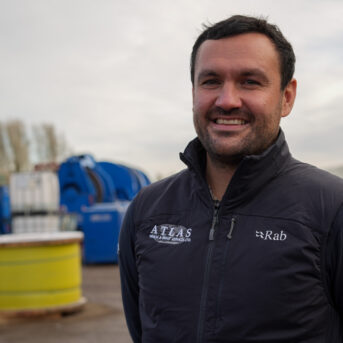OnPath Together for our future
At OnPath, strong business ethics underpin all we do, and we believe in building long-term partnerships with businesses and landowners based on integrity and trust. Being a responsible business means we have robust policies in place that govern us, those that we work with, and how we advocate for a just transition.
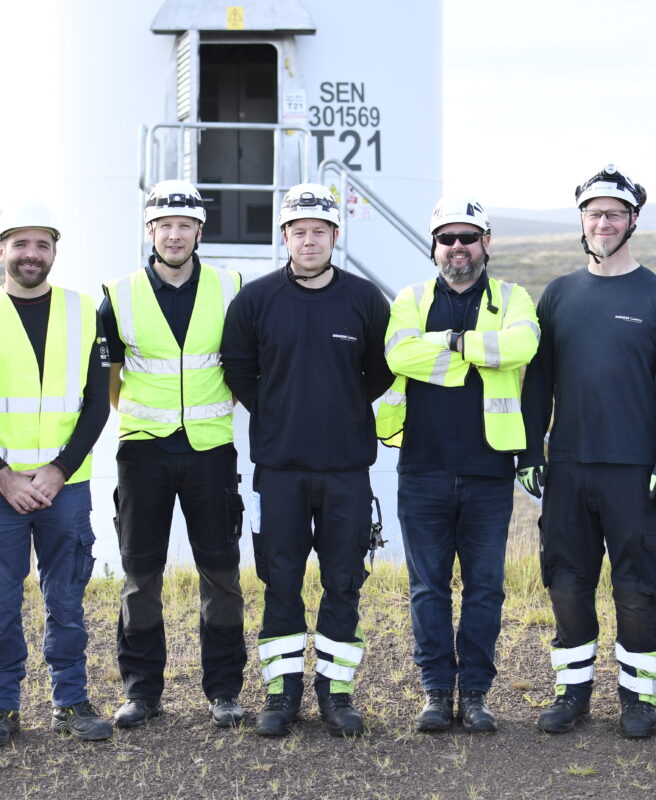
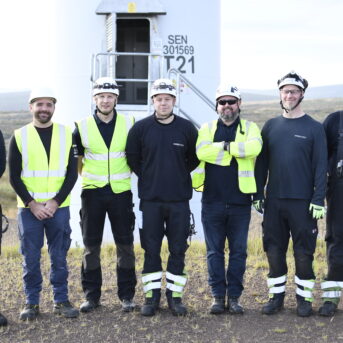
Responsble business
Our commitment is to
- Uphold human rights and promote sustainability in our value chain with transparent reporting
- Maintain robust cybersecurity and data protection across our business
- Advocate for the delivery of a fair, inclusive energy transition which restores nature and tackles climate change
Supporting each other to work sustainably and ethically
Uphold human rights and promote sustainability in our value chain
We pride ourselves on cultivating business partnerships based on mutual respect and shared ethical values, alongside a vision for a more sustainable future.
As our business grows, and as we expand further into solar and battery markets, we are committed to ensuring our supply chain practices continue to follow the highest ethical standards of responsible procurement.
We commit to contracting with local companies, organisations and groups wherever possible and we encourage local businesses to join our supply chain. We strive to ensure our commitment to the local economy is enshrined in projects, our contracts and our partnerships.
We seek out companies that are committed to similar values of working sustainably and ethically, spreading the benefits and economic opportunity of our projects right the way through our value chain.
Find out how we embed these commitments into our tendering process.


OnPath Together
Maintaining robust cybersecurity and data protection across our business.
Cybersecurity is critical to our business and we work to ensure that our assets and data are protected from both physical and digital threats. Following the transition from Banks Renewables to OnPath Energy, a large part of 2024 was spent establishing new systems that follow our ‘Cybersecurity First’ approach and migrating all of our data to these new systems. We have also implemented a suite of cybersecurity tools and third-party monitoring and alert software for all of our systems users.
Cybersecurity is a company-wide responsibility. As such, all employees are required to undertake cybersecurity awareness training at the time of onboarding as well as an annual refresher thereafter. Additional role-specific cybersecurity training is provided where necessary. We ensure all our employees are aware of – and trained to detect – potential fraudulent emails and phishing attempts designed to obtain confidential data or passwords. We run quarterly email phishing tests to reinforce this training.
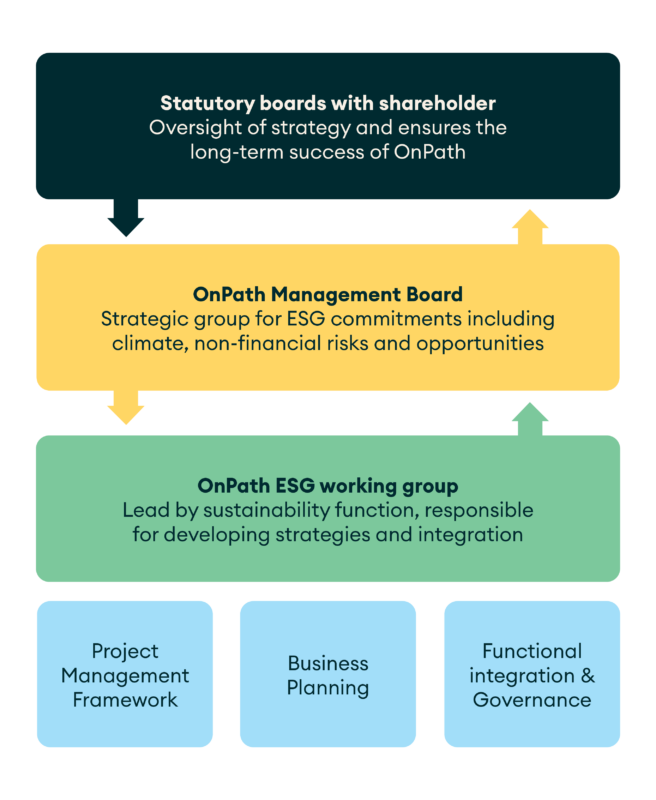

Our governance
Risk management
We conduct a thorough materiality assessment with a range of internal and external stakeholders to identify the most important environmental, social and governance (ESG) topics, risks and impacts.
These ESG-related risks, and the opportunities they present, will be reviewed by the OnPath Board each year, beginning in 2024. This process was previously conducted by the Banks Group.
Management of identified ESG–related risks and opportunities is then embedded in the project management framework and business planning processes.
Over the coming months, we will be busy developing our standalone ESG policy with clear targets and objectives based on the issues most important to our business, as defined by the materiality assessment described above.
As part of Brookfield, our approach to ESG will continue to be closely aligned to their policy, the latest version of which can be viewed on their website.
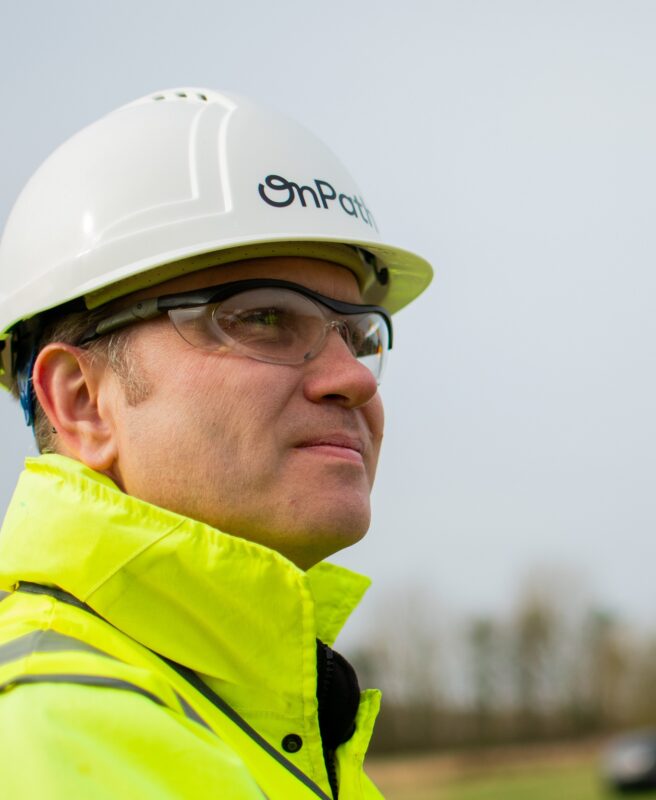
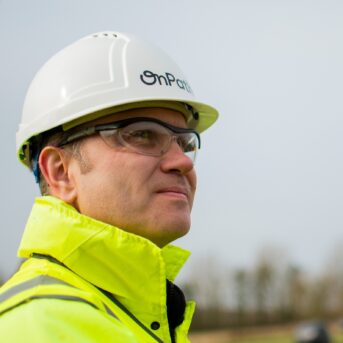
Strong business ethics to underpin all we do
Policies that guide our business conduct
We have developed numerous policies and statements to guide our conduct across our operations and business partnerships. Our policies are based on our core values and aspects of our sustainability approach, and key international frameworks, conventions and guidance, such as the the UN Guiding Principles on Business and Human Rights.
Our policies include:
- Anti-Corruption and Bribery Statement
- Companies Act 2006 S172 Statement
- Environmental Policy
- Equal Opportunities Policy
- Health, Safety and Wellbeing Policy
- Human Rights Policy
- Modern Slavery Statement
- Privacy Policy (including data management and GDPR compliance)
- Quality Policy
These policies form part of our wider Employee Code of Conduct and Supplier Code of Conduct, which detail the expected business standards to which we expect all of our employees, suppliers, contractors and other business partners to adhere.
Employees and contractors are trained on responsible business practices and are required to achieve a 100% pass rate (re-takes are allowed).
As a responsible business, OnPath Energy commits to paying its fair and legal share of tax to support the wider UK community and economy, and strives for complete transparency in its financial reporting.
Learn more about our policies here
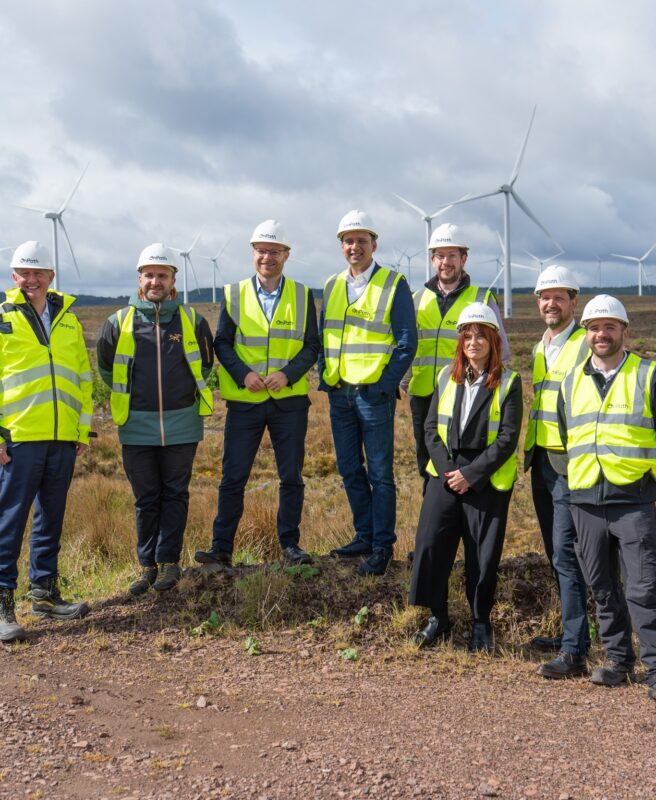
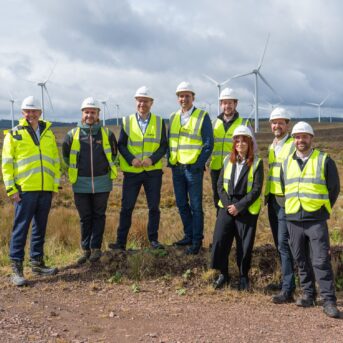
Playing our part
Advocating for a fair and inclusive energy transition
We believe we have a key role to play in advocating for national policy which supports the deployment of renewable energy in a way which is fair, equitable and includes all communities – leaving no one behind. With our expertise and strong history of working with communities to ensure they benefit from our projects, we are better placed than ever to push boundaries, collaborate with others and pioneer new solutions for a just transition to a renewable economy.
Our role in the negotiation and ongoing implementation of the Scottish Onshore Wind Sector Deal demonstrates this. OnPath Energy is part of the G12/S5 Group – an advisory board of 12 developers who helped oversee the 2023 Scottish Onshore Wind Sector Deal – a commitment from the Scottish government and the onshore wind industry to deliver 20 GW of onshore wind in Scotland by 2030 whilst delivering maximum benefits for local communities.
Our role on the panel was to ensure that commitments being made by and asked of the onshore wind industry were feasible, achievable and meaningful. The measures agreed in the deal include halving the time onshore wind farms take to go through planning (to just 12 months) and engaging with local communities at the earliest opportunity to agree a package of community benefits. The deal also includes a commitment to creating a sustainable solution for a circular economy supply chain for the recycling, refurbishing and repurposing of decommissioned wind turbine component parts.

